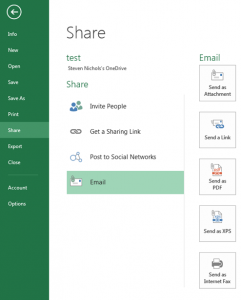
As the digital landscape continues to evolve, managing remote teams has become a crucial skill for leaders across industries. Effective leadership in a remote environment requires a unique blend of communication, emotional intelligence, and adaptability to ensure that teams remain cohesive, productive, and engaged, despite the physical distance. This article explores essential tips and strategies for leading remote teams successfully, helping you navigate the challenges and harness the opportunities that come with remote work.
Importance of Effective Leadership in Remote Team Management
Leading a remote team poses distinct challenges that differ from traditional, in-office management. Without the daily face-to-face interactions that naturally occur in a shared workspace, leaders must be proactive in maintaining team morale, ensuring clear communication, and fostering a sense of belonging among team members. Effective leadership in this context is not just about managing tasks and deadlines—it’s about building trust, encouraging collaboration, and supporting your team members’ emotional well-being.
Building Trust and Communication
Establish Clear Expectations
One of the first steps in managing a remote team is setting clear expectations. This includes defining roles and responsibilities, outlining goals, and setting deadlines. When team members know what is expected of them, they can prioritize their tasks more effectively and work independently with confidence. Regular check-ins and updates can help reinforce these expectations and provide an opportunity for clarification when needed.
Encourage Open Communication
Open communication is vital in a remote work environment. Encourage team members to share their thoughts, concerns, and ideas freely. Use communication tools like Slack, Microsoft Teams, or Zoom to keep lines of communication open. Regular team meetings, whether daily stand-ups or weekly reviews, can help keep everyone on the same page and foster a sense of connection.
Utilize Technology Effectively
Technology is the backbone of remote work. Make sure your team is equipped with the right tools to communicate, collaborate, and manage projects effectively. This includes video conferencing tools, project management software like Asana or Trello, and cloud-based file-sharing platforms like Google Drive or Dropbox. Providing training and support on how to use these tools effectively can also help streamline workflows and reduce frustration.
Emotional Intelligence in Remote Leadership
Show Empathy and Support
Emotional intelligence is a critical component of effective leadership, especially in a remote setting. Show empathy by acknowledging the challenges your team members might be facing, whether it’s balancing work with personal responsibilities or coping with the isolation that can come with remote work. Offering flexible work hours or providing resources for mental health support can go a long way in demonstrating that you care about your team’s well-being.
Recognize and Celebrate Achievements
In a remote environment, it’s easy for team members to feel disconnected or undervalued. Regularly recognizing and celebrating individual and team achievements can help boost morale and reinforce a sense of belonging. Whether it’s through shout-outs during meetings, virtual team celebrations, or even small tokens of appreciation, recognizing hard work and accomplishments helps maintain motivation and engagement.
Foster a Positive Team Culture
Building a positive team culture remotely requires intentional effort. Create opportunities for team bonding through virtual social events, team-building exercises, or informal chat channels where team members can share non-work-related interests. A strong team culture helps build trust and collaboration, which are essential for long-term success.
Strategies for Enhancing Productivity
Set Realistic Goals and Deadlines
Remote work can blur the boundaries between work and personal life, leading to burnout if not managed carefully. Set realistic goals and deadlines that consider the unique challenges of remote work, such as potential distractions at home or the need for more flexible working hours. Encourage your team to take breaks and maintain a healthy work-life balance.
Encourage Autonomy and Accountability
Micromanaging is counterproductive in a remote environment. Instead, empower your team members by giving them autonomy over their tasks and trusting them to deliver results. Encourage accountability by setting clear expectations and regularly reviewing progress. This approach not only increases productivity but also fosters a sense of ownership and responsibility.
Provide Continuous Feedback and Support
Feedback is essential for growth and improvement. In a remote setting, where face-to-face interactions are limited, providing regular, constructive feedback is even more critical. Use one-on-one meetings to discuss performance, address any challenges, and provide guidance. Offering ongoing support helps team members feel valued and ensures they have the resources they need to succeed.
Adapting to the Challenges of Remote Leadership
Stay Flexible and Adaptable
The remote work landscape is constantly evolving, and effective leaders must be adaptable. Be open to trying new tools, adjusting strategies, and changing workflows as needed. Flexibility is key to overcoming the unique challenges that arise in a remote environment, whether it’s dealing with time zone differences or managing a diverse, geographically dispersed team.
Invest in Professional Development
Remote work requires a different set of skills than traditional office work. Invest in your team’s professional development by providing training in remote work best practices, communication, and time management. Equipping your team with the skills they need to thrive in a remote environment not only boosts productivity but also enhances job satisfaction and retention.
Lead by Example
As a leader, your actions set the tone for the entire team. Model the behavior you want to see by being punctual for virtual meetings, communicating clearly and respectfully, and demonstrating a strong work ethic. Show your team that you are committed to their success and well-being by being accessible and responsive to their needs.
Managing remote teams successfully requires a blend of strong leadership skills, emotional intelligence, and the ability to adapt to the unique challenges of a digital work environment. By building trust, fostering open communication, and supporting your team’s emotional and professional needs, you can create a productive and positive remote work culture.
At AdvantEdge Training & Consulting, Inc., we offer tailored leadership development programs designed to equip managers with the skills needed to lead remote teams effectively. Whether you’re new to remote management or looking to enhance your existing skills, our expert-led training can help you navigate the complexities of remote work with confidence.
Ready to take your remote leadership skills to the next level? Contact AdvantEdge Training & Consulting, Inc. today to learn more about our professional development programs and how we can support your journey to becoming a more effective remote leader.










